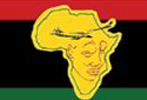When the world was shifting ideologically towards neoliberalism, blind to shocking inequalities, Thandika Mkandawire (1940-2020) bravely stood up for social policies and the developmental state.

With the passing of Thandika Mkandawire on March 27, 2020 the world has lost a giant of development, a towering economist, a brilliant thinker, and a committed fighter for social justice.
Born in 1940, Thandika first experienced the slap of injustice in early childhood. One night, trucks came with soldiers and removed Thandika’s family from their farm in Malawi. They resettled in a town in the Copperbelt of Zambia. There, he attended school (for blacks only) and was protected by his family from the brutal inequalities of the time, until the day he and a friend walked into an opulent white residential area to sell vegetables, and white children insulted and laughed at them.
As a young man, Thandika began writing for newspapers, but in 1965, he was made “persona non grata” in his country, the newly independent Malawi, then governed by pro-apartheid dictator, Kamuzu Banda. He managed to study in the US (at Ohio State University), South Africa (Rhodes University) and Sweden (Stockholm University), where he eventually settled as a political refugee—living proof that refugee policies work.
Soon Thandika excelled as a brilliant researcher. He realized that he did not have to spend his years in exile out of Africa, waiting for Malawi’s liberation (he would only return in 1994 after 30 years in exile). In 1982 he moved to Harare, working at the Zimbabwe Institute of Development Studies, and in 1986 to Senegal, where he became Director of the Dakar-based Council for the Development of Social Science Research in Africa (CODESRIA).
From 1998 to 2009, he was Director of the United Nations Research Institute for Social Development (UNRISD) in Geneva, and later Professor at the Institute for Future Studies in Stockholm and Chair of African Development at the London School of Economics (LSE). It was in Geneva that I first met Thandika who, unlike many academics and UN bureaucrats, was passionate and full of life. His writings are so powerful because he had experienced the problems of development and social injustice first-hand.
His work on “Targeting and Universalism in Poverty Reduction” (2005) was an eye opener—and remains relevant today. While developing countries were trying to build their universal welfare systems after independence, the 1980s debt crisis and adjustment period interrupted the process and made governments abandon universalism for less costly, minimal, targeted safety nets for the poor, accompanied by private services for the wealthy. The inequitable US model was imported into developing nations. At a time when the world was shifting ideologically towards neoliberalism, blind to its shocking inequalities, Thandika bravely stood up for social policies and the developmental state, as shown in his excellent work on Social Policy in a Development Context (2004).
Thandika had an inquisitive, sharp mind, committed to the difficult truths, as evidenced in his works such as “Disempowering New Democracies” (2006), “Maladjusted African Economies and Globalisation” (2004), and “The Spread of Economic Doctrines and Policymaking in Postcolonial Africa” (2014), among many others. I should also mention his very important book, African Intellectuals, Political Culture and Development (2002, 2005).
Thandika Mkandawire was a humble human being. He was truly a kind soul, modest, warm, laughing about everything, and generous with his time to people. He could move from serious analysis to a hilarious observation in a second, and he always had human stories to share. There has been a cascade of sad messages on social media since his passing; he was loved by so many people.
The last time we met, he was tired (I did not know he was ill), but after a couple of drinks he explained with the same passion as always his research on African industrialization: “Nobody realizes that all the pre-conditions are there!” I asked his advice about a few things at the UN and we ended laughing about bureaucrats, their ridiculous ideas, and the way things are—the same as always. “Don’t compromise” he told me, “you start compromising on a small thing and soon you are one of them …” This was Thandika—he was a mentor and an inspiration to many of us.
The world has indeed lost a giant, an exceptional economist committed to social justice. He was an intellectual hero, fighting against the current, one of the best ever Directors at the United Nations. Few on this planet have made such gigantic steps—from a little village in Malawi to distinguished professor at some of the world’s top universities. What would the ignorant white children who laughed at Thandika think now, if they knew?
Heartfelt condolences to his wife Kaarina, his family and friends. He will be sorely missed. But his thoughts and memories stay with us. Hasta siempre, Thandika.

